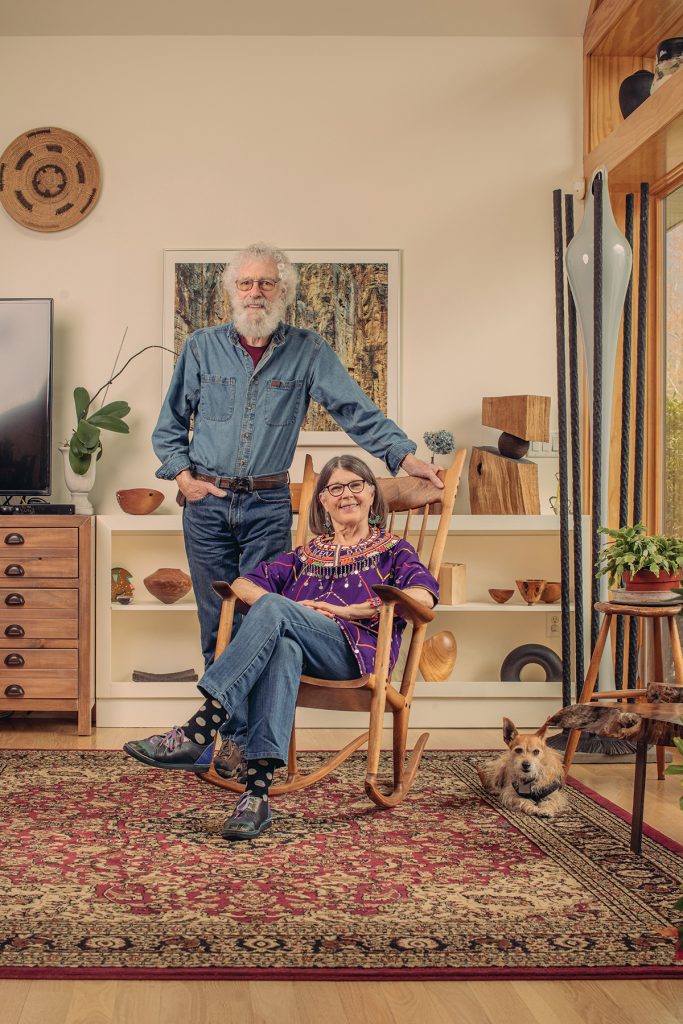
David and Wendy Ellsworth in their Weaverville home.
Photo by Jack Robert
The finely crafted wooden vessels of master woodturner David Ellsworth are reassuringly solid and uniquely transcendent at the same time. “I love making these. Their forms are deceptively simple, yet the details in the wood — a perfectly imperfect medium — make them fascinatingly complex,” he says.
Ellsworth is represented by Asheville’s Momentum Gallery. He authored Ellsworth on Woodturning, runs the School of Woodturning in his studio, and is slated to receive a Smithsonian Visionary Award this fall.
He and his wife, Wendy Ellsworth, a renowned bead artist, have acquired fine craft since the late 1970s. Their collection serves as a visual exclamation point within their Weaverville home, where they’ve resided since 2017.
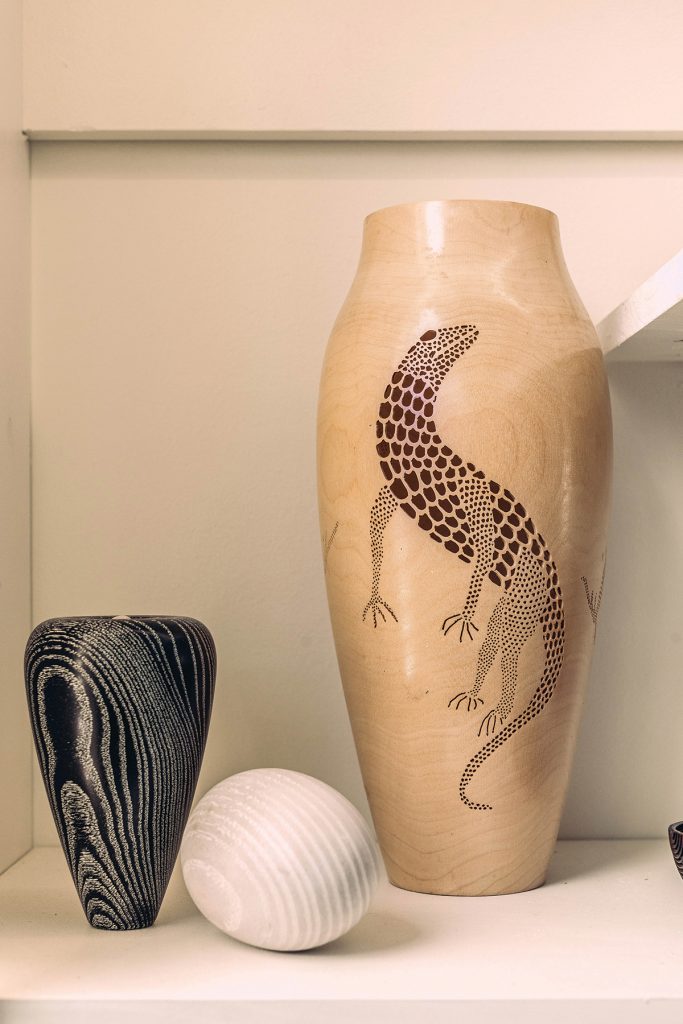
Photo by Jack Robert
Fittingly, you two met in Colorado, at the first craft fair David ever worked.
David: Yes, and we started collecting when we were young and poor. I often acquired pieces by trading with fellow festival artists. Later, I’d budget 15 percent of my show earnings for purchasing art.
What’s the scope of your collection? How did you come to enjoy collecting?
David: We primarily collect vessels of wood, clay, glass, and some metals, by both nationally and internationally known artists. We’ve got about 180 pieces at this point. We’re fortunate that early on, we had access to “cream of the crop” artists. My parents also collected interesting Native American objects — mostly rugs — which probably influenced me.
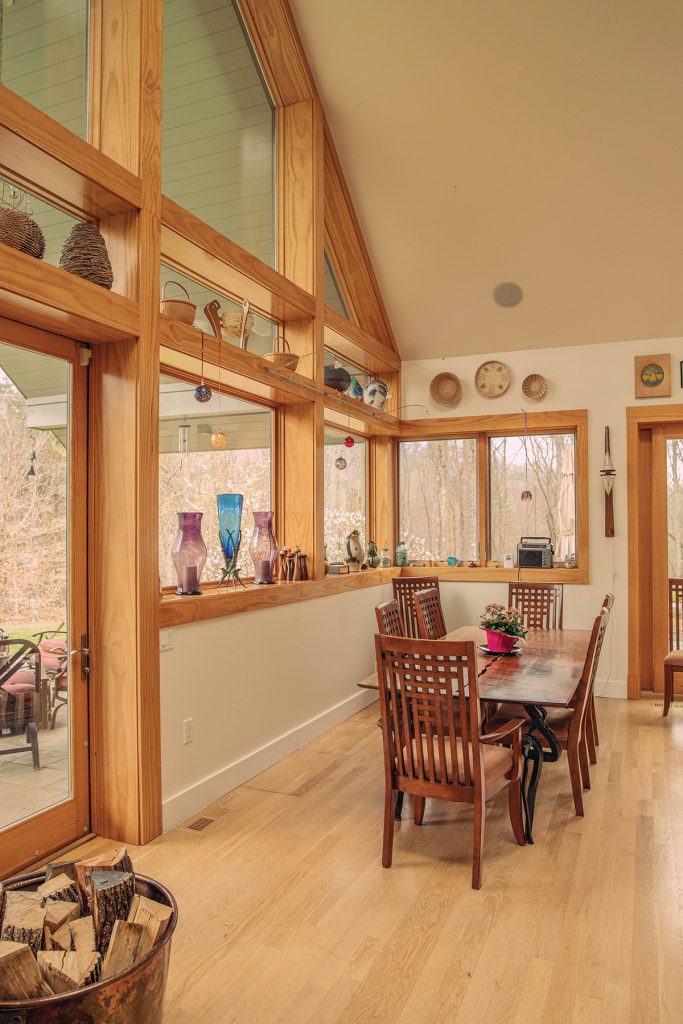
Your house has a real gallery vibe.
Wendy: Our collection was boxed for so long after relocating here from Pennsylvania. Unpacking and displaying it in the shelves that David built during COVID has transformed our space. It feels like home now.
David: Once we find the ideal place for a piece, it remains stable, pretty much. If a new object comes in, then we rearrange.
Tell me more about some of these striking pieces.
David: We love each for different reasons. We recently added a piece by local raku pottery artist Steven Forbes-deSoule. On our wall, we’ve displayed a series of wooden works by Mia Hall, Director of Penland School of Craft. Another favorite sits in front of our large wall of windows: a hand-blown white glass cocoon by world-renowned Philadelphia-based sculptor Steve Tobin, who works in bronze, steel, glass, and clay. Many pieces are small things I’d pick up when traveling and teaching at international woodturning conferences, especially in Western Europe and Australia.
Wendy: We’ve taken a break from acquiring for now, as COVID has hit everyone’s pocketbook, including ours. Plus, we’re running out of room.
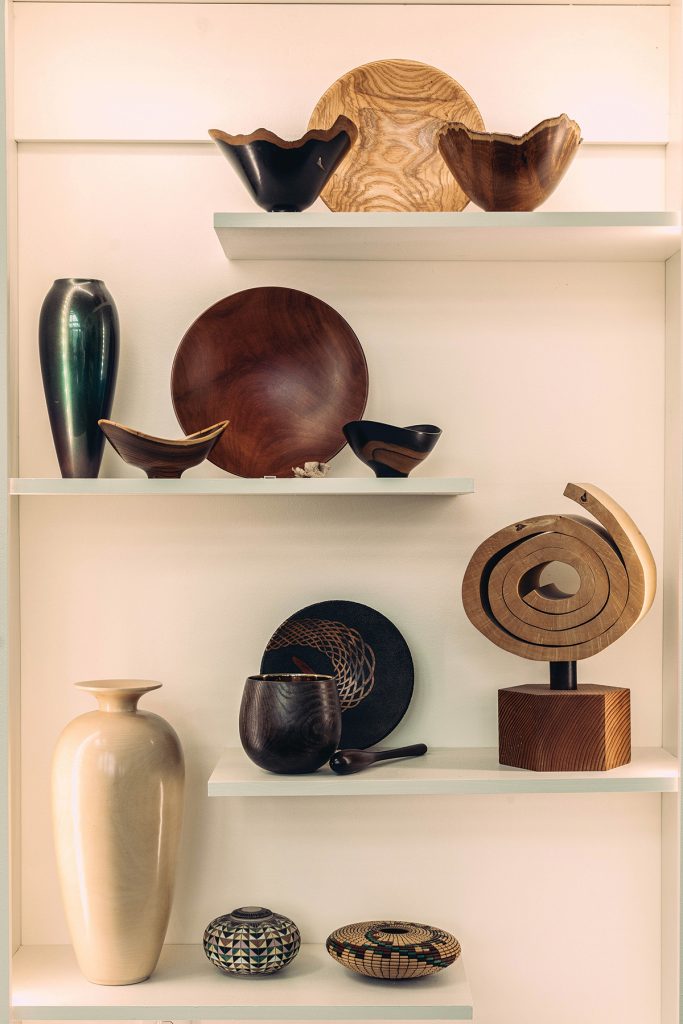
Bowl by Richard Raffan; platter (against wall) by David Ellsworth; bowl by Bob Stocksdale.
Lacquered vase by Giles Gilson; bowl by Bob Stocksdale; platter by Bob Stocksdale; cowboy hat (miniature) by Johannes Michelson; bowl by Bob Stocksdale.
Bronze bowl with striker, Craig Lofton; incised plate, Sharon Doughtie; spiral sculpture, Garry Knox Bennett.
Tall white vase by Alan Ritzman; ceramic bowl with lid, Massaro/Landing; basket iIlusion (wood), David Nittman.
Photo by Jack Robert
Both of you have a passion for teaching. Does it inform your collecting?
David: Yes, in addition to creating my own work, I teach students at my woodturning school. These are educational opportunities for me, too, and gaining even more familiarity with the artist’s process influences my taste.
Wendy: Teaching is central to both of us. The work that originates in the completely unique imagination of a student often inspires.
Do you belong to any collecting groups?
David: We’re members of a group called Collectors of Wood Art, and we’ve enjoyed trips with them. I’m also an instructor for the American Association of Woodturners, a 16,000-member organization. Our annual conferences always include an auction and an “instant gallery,” a huge room in which every attendee displays three works. Collectors can rub elbows at these events.
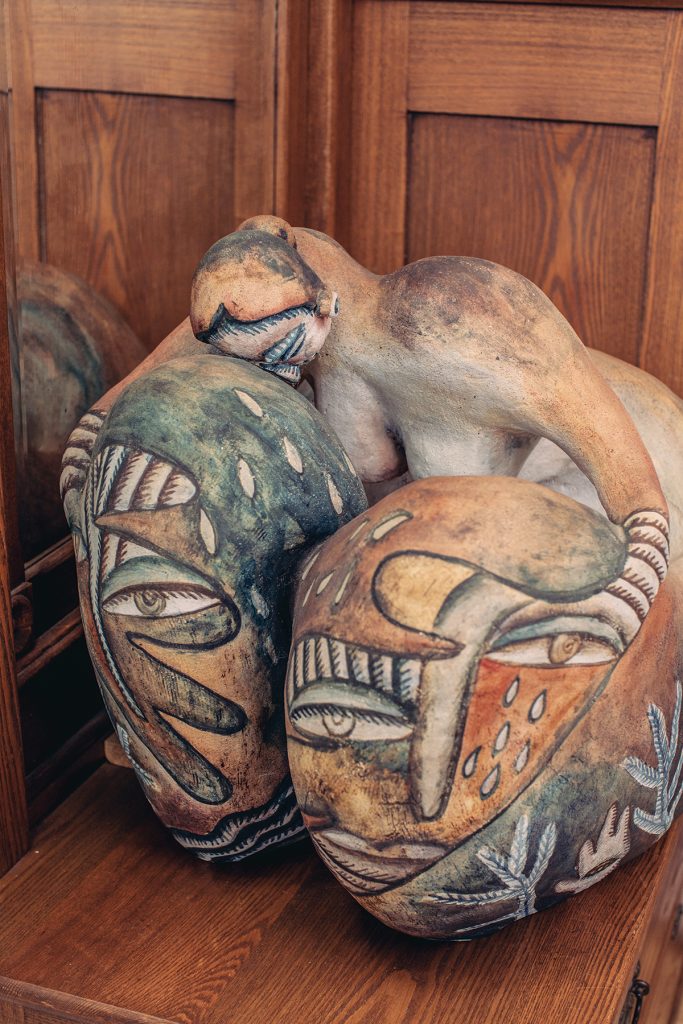
Photo by Jack Robert
Any disagreements when deciding about new additions?
David: If I see something I love, I have no qualms about buying it, as I know Wendy will love it, also.
Wendy: I know, too, that if David serves as a juror at an art show and bestows the Best of Show award, it generally arrives in the mail the following week.
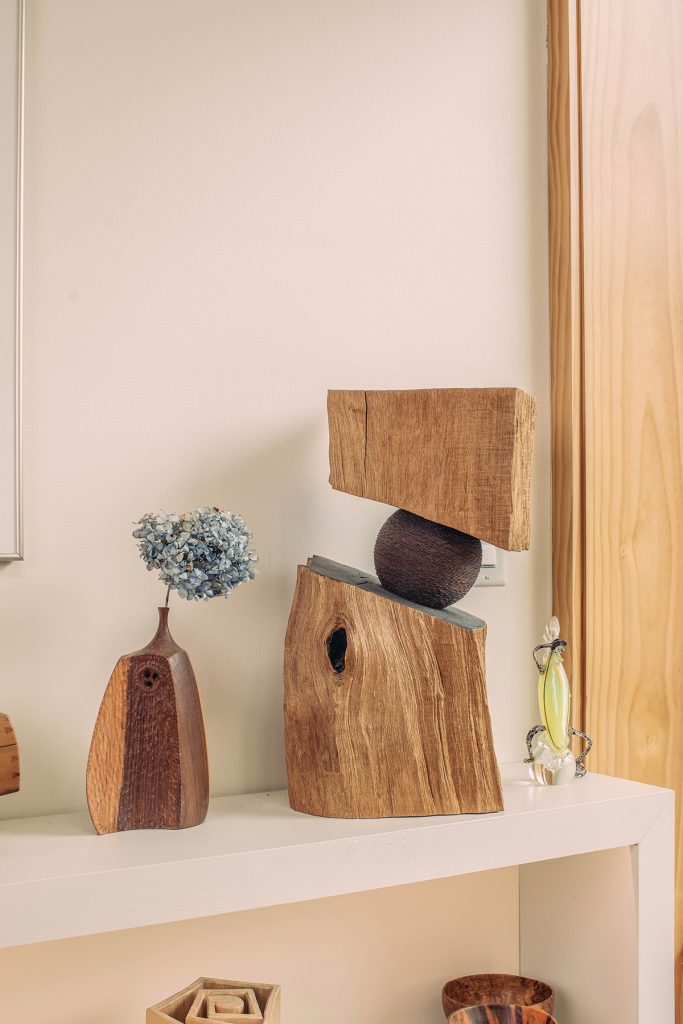
Photo by Jack Robert
What fuels your love of vessels?
David: Their energy. We immediately enter into relationships with these quasi-functional objects. They … reflect the cultures of their makers. For example, African nomadic peoples made vessels with little feet on their bases, which augmented their practical use. The feet would allow people to stick them in the ground and they wouldn’t fall over. When cultures became agrarian, the pots developed flat bottoms. Wood moves, and I love designing objects that reflect that movement, which is different in every species. It’s endlessly exciting.
David and Wendy Ellsworth, Weaverville. Learn more at ellsworthstudios.com.